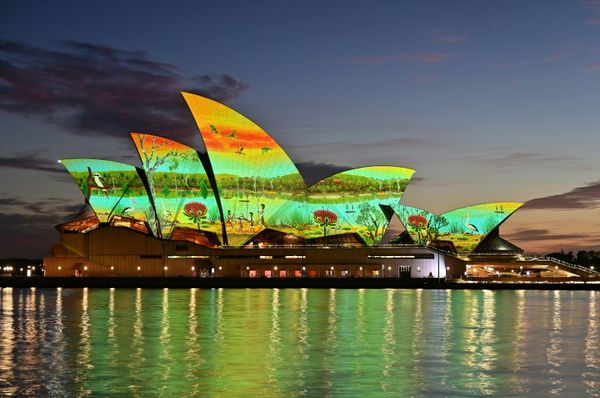
A non-organic peanut, you are!
Seven’s recently departed commercial director is known as one of the most fiery members of the fourth estate in this country, with his vicious texts and emails the stuff of lore.
Reporters at the Nine papers this week annotated his communications like a high school English teacher would, after the publisher broke another expenses scandal at Seven, revealing McWilliam claimed Nine reporter Zoe Samios had driven Seven executive producer Michael Pell to self-harm over her questions to the broadcaster. McWilliam told Samios in October 2022 that her “unfounded reports” had caused Pell’s self-harm, attaching a photo of Pell with a gash on his forehead and in a hospital gown.
“The photo of the purported self-harm attempt was in fact an image taken several weeks earlier of an injury sustained by Pell after he had blacked out on a Los Angeles street,” Nine revealed.
McWillian followed up to the Nine papers after those revelations went public, copying in his “friend … Janet Albertson” (presumably referring to columnist Janet Albrechtsen). The horrendously written mini-essay referred to The Australian’s media reporter James Madden as a “disingenuous” “flea journalist”.
McWilliam also claimed Samios was at one point “quite a good friend” of his. Nine reports he had called her a “complete disgrace”.
CBD this week reported that McWilliam also sent some spicy texts to The Age’s Chris Vedelago over an ASIC investigation into the sale of tennis broadcasting rights in 2016.
“You r a complete joke,” McWilliam reportedly wrote, describing Vedelago as a “peanut, maybe upgraded to a twisty ie non-organic”.
“What a shame you weren’t around during Watergate.”
McWilliam reportedly told CBD this week that he didn’t even recall who Vedelago was.
Tele gets with the times
It’s the year of our lord, 2024, and The Daily Telegraph has discovered end-to-end encryption.
“Appy to help crooks” was the headline on the front page of Sydney’s biggest tabloid, alongside a slightly creepy photograph of Meta boss Mark Zuckerberg. The online version of the “exclusive” gave more detail in the headline: “WhatsApp a profitable haven for Sydney’s drug dealers”.
The article claimed that “drug dealing would be virtually impossible for criminals without social media and apps like Meta-owned WhatsApp”. The Daily Telegraph’s big scoop appears to be that social media and messaging apps, the primary method by which people communicate digitally in this day and age, are also the primary method for drug deals. Shocker.
Guardian Australia’s Paul Karp noted that Australian authorities had taken action to address the use of encrypted messaging apps over five years ago. Indeed, it might be front-page news today, but WhatsApp introduced end-to-end encryption almost a decade ago in 2016. You can also find end-to-end encryption on almost any popular messaging app these days, including Meta’s other application Messenger, as well as Signal, Wickr or Telegram. Indeed, government cabinets have been using WhatsApp for communications for almost as long as they have had ready access to encrypted messages on their phones.
Guardian Australia’s Josh Taylor noted that if the journalists you’re leaking to aren’t using end-to-end encryption, you’re best off not leaking to them. Lucky for you, dear reader, I use end-to-end encryption. Hint, hint.
Guardian Australia’s mea culpa
Guardian Australia has been forced to run a correction this week, with Karen Middleton’s article on Peter Dutton’s latest remarks on the Israel-Gaza conflict garnering a significant amount of criticism on social media.
“‘Something is rotten in the state of Australia’: Peter Dutton blames police and Labor for rise in antisemitism”, read the headline. The offending passage originally read that the Sydney Opera House was “the site of violent anti-Jewish protests that took place two days after the 7 October Hamas attacks on Israel”.
Following criticism online, Guardian Australia quietly amended the passage to remove reference to the terms “violent” and “anti-Jewish”.
Rally organisers have maintained that there was a Jewish presence at the rallies.
After being asked by Media Briefs why there was no correction added to the article, a correction was added.
“This article was amended on 11 April 2024 to remove a description of the 9 October pro-Palestine protest at the Opera House as ‘violent’. As extensively reported, the protest included extreme and offensive rhetoric, but there were no reports of widespread or extreme physical violence.”
Media Briefs asked Guardian Australia why the correction did not refer to the use or subsequent removal of the term “anti-Jewish”, and was told the masthead had no further comment.
Moves
- Former Nine political editor Chris Uhlmann joins Sky News Australia as a contributor
- Seven chief executive James Warburton has moved up his departure from the company after nearly five years in the role. He was set to leave at the end of financial year but has pushed forward his departure to April 18.
Tweet of the week







